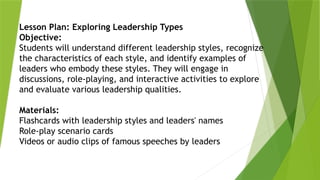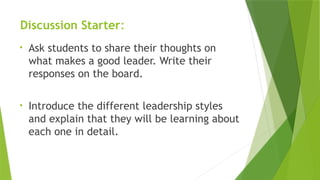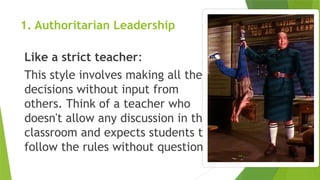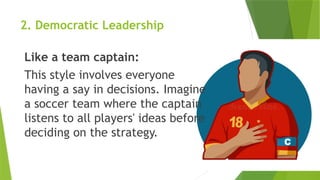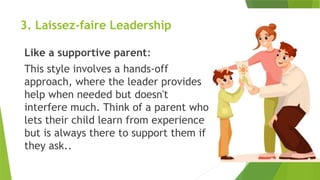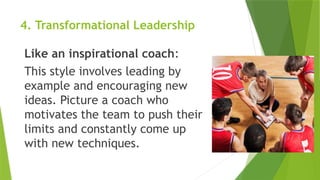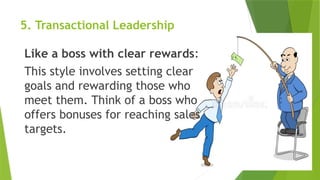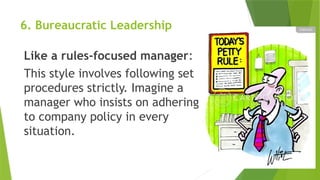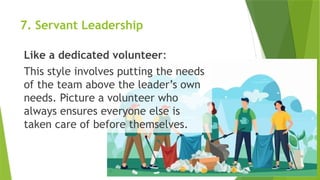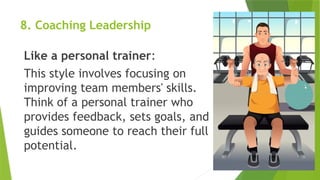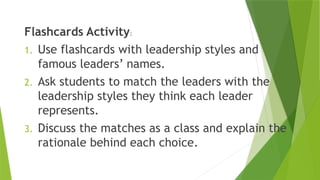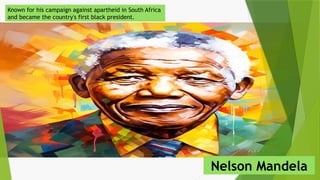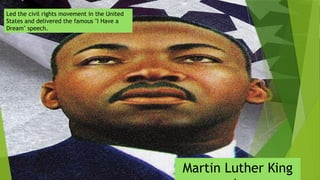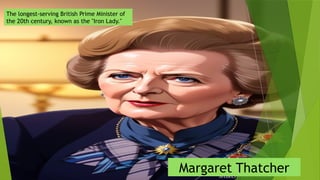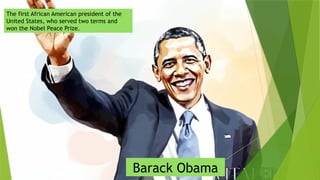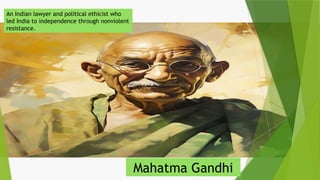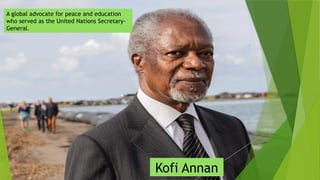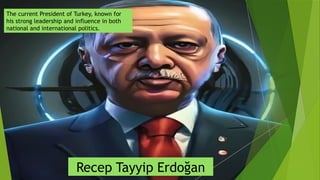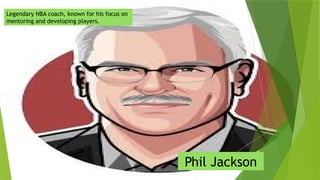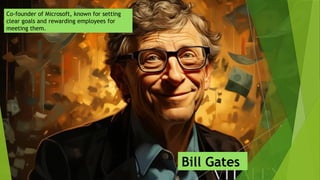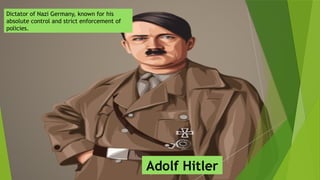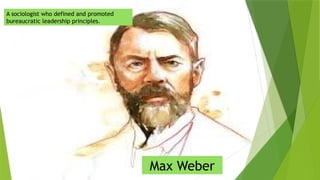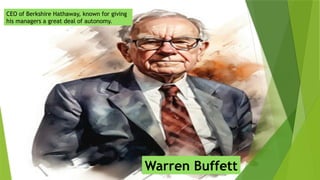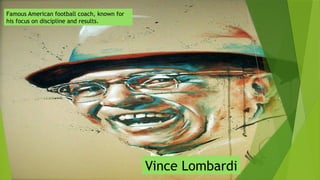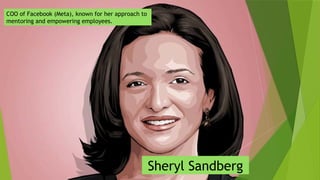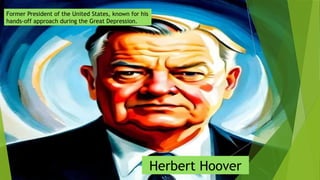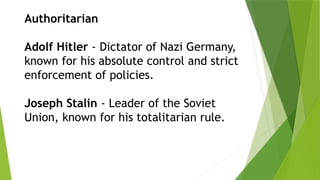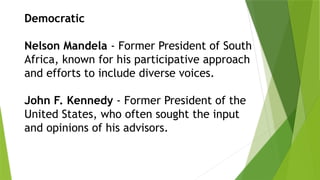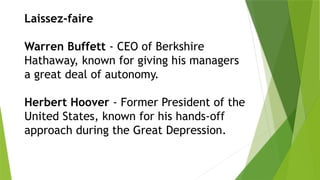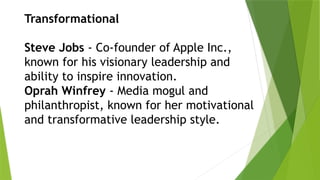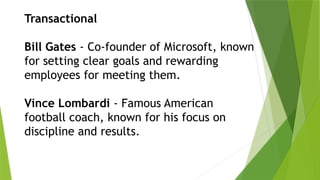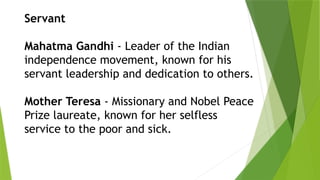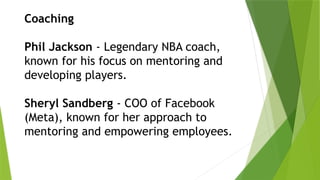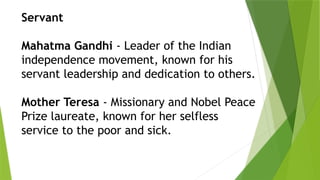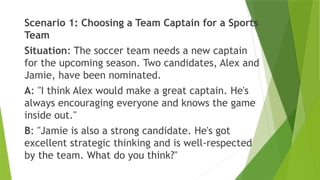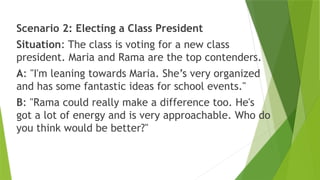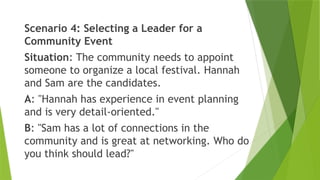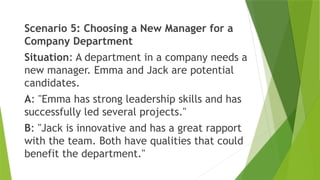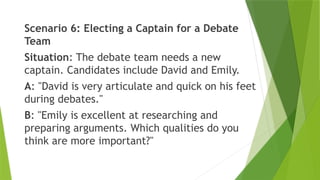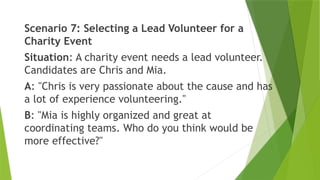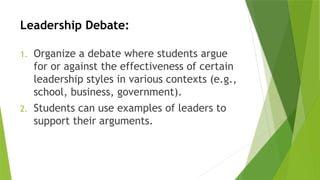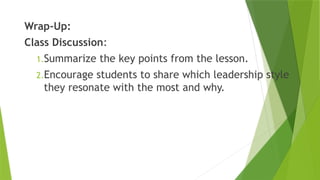English As a Second Language Lesson Plan-TYPES OF LEADERSHPSpptx
- 1. Lesson Plan: Exploring Leadership Types Objective: Students will understand different leadership styles, recognize the characteristics of each style, and identify examples of leaders who embody these styles. They will engage in discussions, role-playing, and interactive activities to explore and evaluate various leadership qualities. Materials: Flashcards with leadership styles and leaders' names Role-play scenario cards Videos or audio clips of famous speeches by leaders
- 5. Discussion Starter: • Ask students to share their thoughts on what makes a good leader. Write their responses on the board. • Introduce the different leadership styles and explain that they will be learning about each one in detail.
- 6. 1. Authoritarian Leadership Like a strict teacher: This style involves making all the decisions without input from others. Think of a teacher who doesn't allow any discussion in the classroom and expects students to follow the rules without question.
- 7. 2. Democratic Leadership Like a team captain: This style involves everyone having a say in decisions. Imagine a soccer team where the captain listens to all players' ideas before deciding on the strategy.
- 8. 3. Laissez-faire Leadership Like a supportive parent: This style involves a hands-off approach, where the leader provides help when needed but doesn't interfere much. Think of a parent who lets their child learn from experience but is always there to support them if they ask..
- 9. 4. Transformational Leadership Like an inspirational coach: This style involves leading by example and encouraging new ideas. Picture a coach who motivates the team to push their limits and constantly come up with new techniques.
- 10. 5. Transactional Leadership Like a boss with clear rewards: This style involves setting clear goals and rewarding those who meet them. Think of a boss who offers bonuses for reaching sales targets.
- 11. 6. Bureaucratic Leadership Like a rules-focused manager: This style involves following set procedures strictly. Imagine a manager who insists on adhering to company policy in every situation.
- 12. 7. Servant Leadership Like a dedicated volunteer: This style involves putting the needs of the team above the leader’s own needs. Picture a volunteer who always ensures everyone else is taken care of before themselves.
- 13. 8. Coaching Leadership Like a personal trainer: This style involves focusing on improving team members' skills. Think of a personal trainer who provides feedback, sets goals, and guides someone to reach their full potential.
- 14. Flashcards Activity: 1. Use flashcards with leadership styles and famous leaders’ names. 2. Ask students to match the leaders with the leadership styles they think each leader represents. 3. Discuss the matches as a class and explain the rationale behind each choice.
- 15. Known for his campaign against apartheid in South Africa and became the country's first black president. Nelson Mandela
- 16. Led the civil rights movement in the United States and delivered the famous "I Have a Dream" speech. Martin Luther King
- 17. The longest-serving British Prime Minister of the 20th century, known as the "Iron Lady." Margaret Thatcher
- 18. The first African American president of the United States, who served two terms and won the Nobel Peace Prize. Barack Obama
- 19. An Indian lawyer and political ethicist who led India to independence through nonviolent resistance. Mahatma Gandhi
- 20. A global advocate for peace and education who served as the United Nations Secretary- General. Kofi Annan
- 21. The current President of Turkey, known for his strong leadership and influence in both national and international politics. Recep Tayyip ErdoÄźan
- 22. Legendary NBA coach, known for his focus on mentoring and developing players. Phil Jackson
- 23. Co-founder of Apple Inc., known for his visionary leadership and ability to inspire innovation. Steve Jobs
- 24. Co-founder of Microsoft, known for setting clear goals and rewarding employees for meeting them. Bill Gates
- 25. Dictator of Nazi Germany, known for his absolute control and strict enforcement of policies. Adolf Hitler
- 26. A sociologist who defined and promoted bureaucratic leadership principles. Max Weber
- 27. CEO of Berkshire Hathaway, known for giving his managers a great deal of autonomy. Warren Buffett
- 28. Famous American football coach, known for his focus on discipline and results. Vince Lombardi
- 29. COO of Facebook (Meta), known for her approach to mentoring and empowering employees. Sheryl Sandberg
- 30. Former President of the United States, known for his hands-off approach during the Great Depression. Herbert Hoover
- 31. Authoritarian Adolf Hitler - Dictator of Nazi Germany, known for his absolute control and strict enforcement of policies. Joseph Stalin - Leader of the Soviet Union, known for his totalitarian rule.
- 32. Democratic Nelson Mandela - Former President of South Africa, known for his participative approach and efforts to include diverse voices. John F. Kennedy - Former President of the United States, who often sought the input and opinions of his advisors.
- 33. Laissez-faire Warren Buffett - CEO of Berkshire Hathaway, known for giving his managers a great deal of autonomy. Herbert Hoover - Former President of the United States, known for his hands-off approach during the Great Depression.
- 34. Transformational Steve Jobs - Co-founder of Apple Inc., known for his visionary leadership and ability to inspire innovation. Oprah Winfrey - Media mogul and philanthropist, known for her motivational and transformative leadership style.
- 35. Transactional Bill Gates - Co-founder of Microsoft, known for setting clear goals and rewarding employees for meeting them. Vince Lombardi - Famous American football coach, known for his focus on discipline and results.
- 36. Servant Mahatma Gandhi - Leader of the Indian independence movement, known for his servant leadership and dedication to others. Mother Teresa - Missionary and Nobel Peace Prize laureate, known for her selfless service to the poor and sick.
- 37. Coaching Phil Jackson - Legendary NBA coach, known for his focus on mentoring and developing players. Sheryl Sandberg - COO of Facebook (Meta), known for her approach to mentoring and empowering employees.
- 38. Servant Mahatma Gandhi - Leader of the Indian independence movement, known for his servant leadership and dedication to others. Mother Teresa - Missionary and Nobel Peace Prize laureate, known for her selfless service to the poor and sick.
- 39. Scenario 1: Choosing a Team Captain for a Sports Team Situation: The soccer team needs a new captain for the upcoming season. Two candidates, Alex and Jamie, have been nominated. A: "I think Alex would make a great captain. He's always encouraging everyone and knows the game inside out." B: "Jamie is also a strong candidate. He's got excellent strategic thinking and is well-respected by the team. What do you think?"
- 40. Scenario 2: Electing a Class President Situation: The class is voting for a new class president. Maria and Rama are the top contenders. A: "I'm leaning towards Maria. She’s very organized and has some fantastic ideas for school events." B: "Rama could really make a difference too. He's got a lot of energy and is very approachable. Who do you think would be better?"
- 41. Scenario 3: Appointing a Project Manager for a Group Assignment Situation: A group needs to select a project manager for their class assignment. Sarah and John are being considered. A: "Sarah would be an excellent choice. She has great organizational skills and keeps everyone on track." B: "John is very creative and comes up with innovative solutions. Both have their strengths, so it’s a tough decision."
- 42. Scenario 4: Selecting a Leader for a Community Event Situation: The community needs to appoint someone to organize a local festival. Hannah and Sam are the candidates. A: "Hannah has experience in event planning and is very detail-oriented." B: "Sam has a lot of connections in the community and is great at networking. Who do you think should lead?"
- 43. Scenario 5: Choosing a New Manager for a Company Department Situation: A department in a company needs a new manager. Emma and Jack are potential candidates. A: "Emma has strong leadership skills and has successfully led several projects." B: "Jack is innovative and has a great rapport with the team. Both have qualities that could benefit the department."
- 44. Scenario 6: Electing a Captain for a Debate Team Situation: The debate team needs a new captain. Candidates include David and Emily. A: "David is very articulate and quick on his feet during debates." B: "Emily is excellent at researching and preparing arguments. Which qualities do you think are more important?"
- 45. Scenario 7: Selecting a Lead Volunteer for a Charity Event Situation: A charity event needs a lead volunteer. Candidates are Chris and Mia. A: "Chris is very passionate about the cause and has a lot of experience volunteering." B: "Mia is highly organized and great at coordinating teams. Who do you think would be more effective?"
- 46. Leadership Debate: 1. Organize a debate where students argue for or against the effectiveness of certain leadership styles in various contexts (e.g., school, business, government). 2. Students can use examples of leaders to support their arguments.
- 47. Wrap-Up: Class Discussion: 1.Summarize the key points from the lesson. 2.Encourage students to share which leadership style they resonate with the most and why.
Editor's Notes
- #6: Presentation: Overview of Leadership Styles: Present the 8 leadership types: Authoritarian, Democratic, Laissez-faire, Transformational, Transactional, Bureaucratic, Servant, and Coaching. Use the whiteboard to list each style and provide a brief description.
- #15: Democratic
- #16: Transformational
- #17: Autocratic
- #18: Transformational
- #19: Servant
- #20: Servant
- #21: Servant
- #22: Coaching
- #23: Transformational
- #24: Transactional
- #25: Authoritarian
- #26: Bureaucratic
- #27: Laissez-faire
- #28: Transactional
- #29: Transactional
- #30: Transactional
- #39: Skill Practice: Role-Playing Scenarios: Divide students into small groups and assign each group a leadership style and a scenario. Provide scenario cards with different situations (e.g., leading a sports team, managing a school project, organizing a community event). Groups will role-play their assigned leadership style in the given scenario. After the role-play, have each group present their scenario and discuss how their leadership style influenced their approach.
- #40: Skill Practice: Role-Playing Scenarios: Divide students into small groups and assign each group a leadership style and a scenario. Provide scenario cards with different situations (e.g., leading a sports team, managing a school project, organizing a community event). Groups will role-play their assigned leadership style in the given scenario. After the role-play, have each group present their scenario and discuss how their leadership style influenced their approach.
- #41: Skill Practice: Role-Playing Scenarios: Divide students into small groups and assign each group a leadership style and a scenario. Provide scenario cards with different situations (e.g., leading a sports team, managing a school project, organizing a community event). Groups will role-play their assigned leadership style in the given scenario. After the role-play, have each group present their scenario and discuss how their leadership style influenced their approach.
- #42: Skill Practice: Role-Playing Scenarios: Divide students into small groups and assign each group a leadership style and a scenario. Provide scenario cards with different situations (e.g., leading a sports team, managing a school project, organizing a community event). Groups will role-play their assigned leadership style in the given scenario. After the role-play, have each group present their scenario and discuss how their leadership style influenced their approach.
- #43: Skill Practice: Role-Playing Scenarios: Divide students into small groups and assign each group a leadership style and a scenario. Provide scenario cards with different situations (e.g., leading a sports team, managing a school project, organizing a community event). Groups will role-play their assigned leadership style in the given scenario. After the role-play, have each group present their scenario and discuss how their leadership style influenced their approach.
- #44: Skill Practice: Role-Playing Scenarios: Divide students into small groups and assign each group a leadership style and a scenario. Provide scenario cards with different situations (e.g., leading a sports team, managing a school project, organizing a community event). Groups will role-play their assigned leadership style in the given scenario. After the role-play, have each group present their scenario and discuss how their leadership style influenced their approach.
- #45: Skill Practice: Role-Playing Scenarios: Divide students into small groups and assign each group a leadership style and a scenario. Provide scenario cards with different situations (e.g., leading a sports team, managing a school project, organizing a community event). Groups will role-play their assigned leadership style in the given scenario. After the role-play, have each group present their scenario and discuss how their leadership style influenced their approach.

